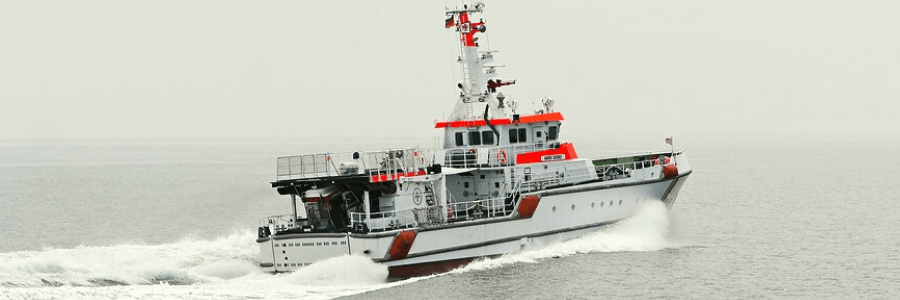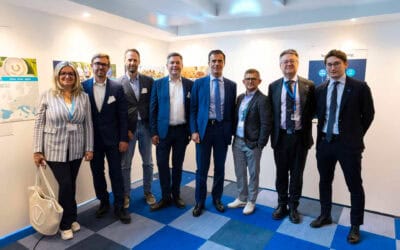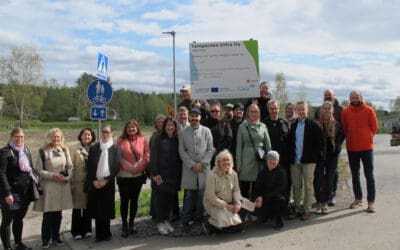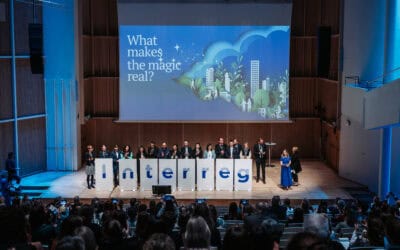With an average of 300 accidents per year, as reported by the Baltic Marine Environment Protection Commission’s (HELCOM), the Baltic Sea seems to be a challenging area for navigation. The ResQU2 platform has reinforced the preparedness of rescue authorities, services, seaports and other authorities for large-scale incidents in the Baltic Sea.
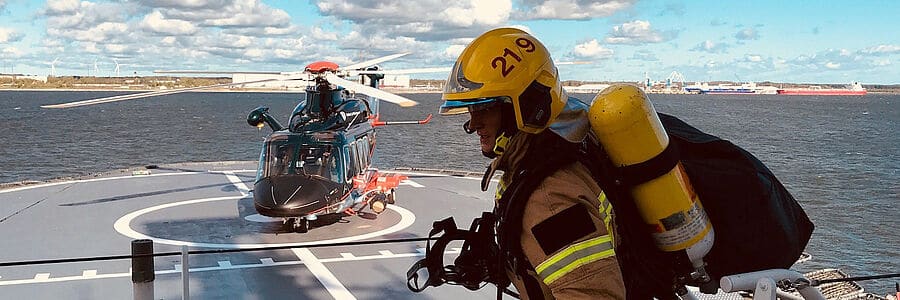
© Jarno Lehtoranta
A real risk of maritime accidents
The amount of maritime traffic in the Baltic Sea is constantly growing; more chemicals are being transported and the number of passengers is increasing. The risk of an accident exists and, in the worst-case scenario, a chemical tanker could collide with a passenger ship.
Hazardous materials are stored in or transported through ports, nearby which a large number of people live. They are also exposed to the possible side effects of an accident, such as toxic clouds or smoke spreading through air. These types of incidents usually require large scale rescue operations, and in the case of maritime incidents, also joint efforts of several countries. In order for the authorities to be able to cooperate in these international rescue operations, they need to work together. However, without joint guidelines, procedures, and frequent joint exercises, this would not be possible.
What is the ResQU2 platform?
A number of such guidelines, procedures and lessons learned from previous incidents already exist. Thanks to the ResQU2 project platform, all the gained learning experiences and existing standard operational procedures and guidelines can be easily accessed and shared among the national rescue authorities around the Baltic and North Sea areas.
The platform brought together four projects, which had already tackled problems related to emergency preparedness in the region:
- ChemSAR (Interreg Baltic Sea Region) created operational plans and procedures for maritime search and rescue in hazardous and noxious substances (HNS) incidents.
- DiveSMART Baltic (Interreg Baltic Sea Region) increased preparedness and efficiency in underwater operations by formalising an international board of divers from the BSR countries.
- HAZARD (Interreg Baltic Sea Region) aimed at mitigating the effects of emergencies in major seaports in the Baltic Sea Region, the rescue services from different BSR countries shared best practices in hazardous materials incidents and port’s risk management.
- MIRG EX (EU Civil Protection Mechanism) brought together four Maritime incident response groups, i.e., fire fighter teams trained specifically to respond to incidents on board ships.
The relevance of sharing existing guidelines and procedures for rescue operations
Common knowledge and shared practices have improved the emergency preparedness in Estonia, Finland, Germany, Latvia, Lithuania, Poland and Sweden, and helped reduce the effects of possible large-scale incidents at sea or in ports. The project platform organised different types of dissemination events to communicate the best practices to professionals across the region. All in all, ResQU2 reached over 300 professionals in over twenty seminars, webinars and workshops. Some of the events attracted interest from experts even outside Europe.
Among others, the project partners cooperated with several high level national and international organisations, such as the International Maritime Organization (IMO) and the European Centre of Excellence for Countering Hybrid Threats (Hybrid CoE), which advanced the durability of the outcomes even further.
The conditions prevailing during an incident, such as the type of incident, its initial size, response time, and local circumstances like weather and sea state, are some examples that can have an impact on the effectiveness of the response. ResQU2 partners have also investigated what the new developments in the field of maritime incident response are and what could be done to further improve emergency preparedness in the future.
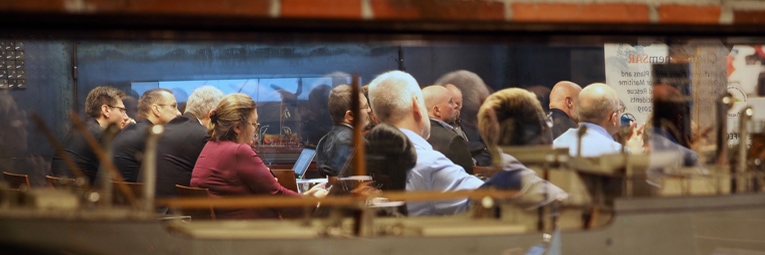
© Päivi Söderholm
Team-work as a win-win situation
The work with increasing safety and efficiency of international rescue operations is ongoing. The established relations between authorities in different countries are valuable to everyone who took part in the project.
“The ResQU2 Project offered a brilliant opportunity to continue the work and to disseminate the results achieved in the preceding projects. Again, a EUSBSR flagship project proved that long-lasting cooperation and new contacts to experts from different countries, different organisations and different levels are an added value beside the primary outcomes of international projects. I am sure that after the official ending of the project, I can rely on all of the colleagues I met within in project. I can and I will turn to them in need for cooperation or simply to discuss my daily life problems and to find solutions together with my international colleagues,” says Jürgen Krempin from the Hamburg Fire and Rescue Service.
“The importance of these international contacts cannot be overestimated. Exchange of knowledge, skills and best practices are fruitful ‘side effects’ of international projects and ResQu2 is an outstanding example for these extra effects. Briefly expressed, it was a very good decision for Hamburg Fire and Rescue Service to work in ResQu2 as a project partner and it was worth time and efforts we spent to achieve the project’s goals,” he continues.
Teemu Niemelä from the Finnish Border Guard has similar thoughts about the platforms’ results: “Most important results of the work with the ResQU2 project platform will see the light later, as the implementation phase takes time. Best practices, processes and procedures are now part of the ‘common knowledge’ of the participated organisations and were also widely disseminated during ResQU2 seminars, workshops and exercises. Now that there’s knowledge and existing contacts to authorities in other countries, it will make the adaption of the procedures easier in regions and countries around the Baltic Sea region and I’m sure it will happen in time.”
Thanks to the hard work and research done during the past years as well as EU funding, the project partners have formed an international coordination group for emergency preparedness that will keep being alive after the end of the project. It is one of the examples how working across projects and across borders has a direct impact on the safety on the Baltic Sea.
Article by Mariikka Whiteman, University of Turku, with support of Luca Arfini, Interreg Reporter – Interreg Volunteer Youth Managing Authority/Joint Secretariat of Interreg Baltic Sea Region
